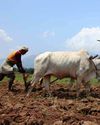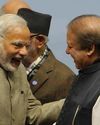On the 50th anniversary of the uprising, Naxalbari shrugs off its gory past.

WHAT’S IN A name? A lot, so would say India’s ultra-left-ists who, caught in a time warp, still dream of “annihilation of class enemies” and a “revolution” to convert the country into a “dictatorship of the proletariat”. But quite like the name of the half village-half town in Bengal that the gory movement was born in, the revolution also means little or nothing today.
Naxalbari, about 40 kilometres west of Siliguri in north Bengal, defies all etymological definitions. While “bari” means home in Bengali, “Naxal” finds no mention in the lexicon of Bengali words. Or, for that matter, in the dictionary of the Nepalis, adivasis or Koch-Rajbanshis who inhabit the area. No one quite knows where the name originated from or what it means. Similarly, the movement that appropriated the name of this village also holds little political or intellectual significance today.
And what’s more, Naxalbari itself is trying desperately to live down its name. As was evident on the May 25 this year. Exactly 50 summers from that day (May 25, 1967), the deaths of 11 women and children being used as human shields by belligerent peasants armed with swords, spears, bows and arrows and other weapons in police firing ignited the Naxalite movement. The day is considered to be the birthday of the movement.
This story is from the June 2017 edition of Swarajya Mag.
Start your 7-day Magzter GOLD free trial to access thousands of curated premium stories, and 9,000+ magazines and newspapers.
Already a subscriber ? Sign In
This story is from the June 2017 edition of Swarajya Mag.
Start your 7-day Magzter GOLD free trial to access thousands of curated premium stories, and 9,000+ magazines and newspapers.
Already a subscriber? Sign In

Refuging Progess
There is a well-orchestrated global conspiracy to deny scientific and technological developments from the West to Third World countries.

The Monk Of Science
Vivekananda believed that Religion should be subjected to scientific methods of investigation. The third and concluding part of our series on the Swami and his views on science.
The Next Step
Indian technical manpower can be trained for high-value-added emerging services in the era of mass commoditisation of hardware.
The Threat Of Autarchy
The force of globalisation is an irreversible reality, and it is countries like India and China that will nurture it going forward.

Neanderthals: The Womb Of Caves
Recent discoveries indicate that Neanderthals may have had a rich inner life, including symbolic thought. Indeed, they may have been the progenitors of human religions.

Getting India's World Right
Incremental concessions will get India nowhere with Pakistan and China. What we need is a classically conservative foreign policy, based on realism.

The Hesitant Orbit
In order to march boldly ahead into the deep space, New Delhi must work towards building a station, boost its techno-economic planning and use the Indian Space Research Organisation smartly.

Nudges And Narratives
The debate surrounding Sanjay Leela Bhansali’s Padmavati brings India a complex network of portraits within a cultural world-system.

The Spell Of Specialisation
THE INDIAN ADMINISTRATIVE SERVICE NEEDS AN URGENT REJIG. THE KEY TO SPEED AND EFFICIENCY LIES IN PUTTING AN END TO A GENERALIST APPROACH AND IN GOING FOR A NEW SERVICE.
The Great Gamble
With demonetisation, the prime minister has taken a huge risk— both economic and political. He must succeed, because this move could transform both our economy and our society.